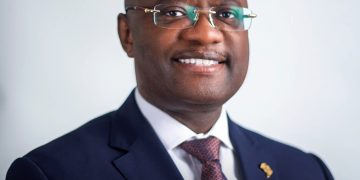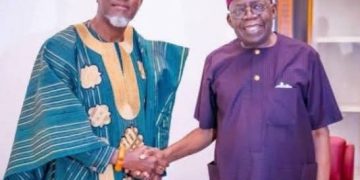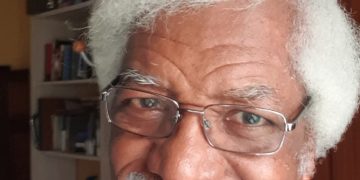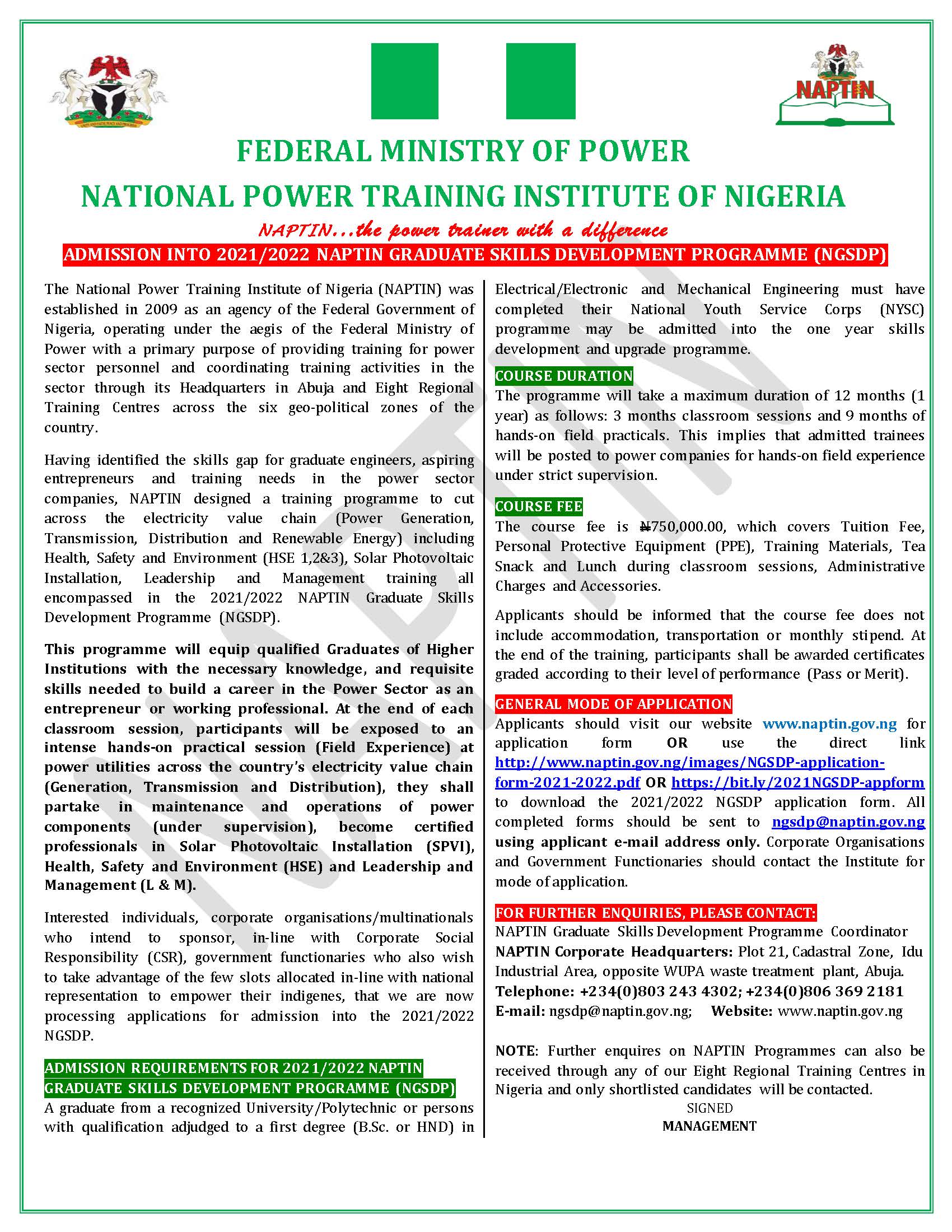By YANGE IKYAA
A video on the website of Smile Train shows little kids, most of them less than 10 years old and numbering about 22, singing one of the most popular songs among children in many parts of the English-speaking world. In a thunderous chorus, combined with the most pleasant melodies in the background, they chant with all the energy and enthusiasm they could muster, saying:
“I love you, you love me;
We are happy family;
With a great big hug and a kiss from me to you;
Won’t you say you love me too?”
However, these kids, who are now members of “Nigeria’s Smile and Sing Club” and can now sing anywhere before any crowd of people, were previously speechless and could not communicate orally or utter a word and be heard by others and understood or regarded in a meaningful manner.
This is because they had been born with a speech defect or impairment caused by cleft, which is a common medical condition that occurs as openings or splits in the roof of the mouth and on the lip.
Cleft also causes difficulty in speaking or feeding, and sometimes in breathing among those affected by it, and many people grow into adulthood with all those physical and physiological challenges.
Therefore, it was truly shocking and almost a miracle to see and hear those kid-members of the “Smile and Sing Club” loudly and clearly sing to the delight of a large gathering of spectators, considering the fact these kids had previously suffered severe feeding, speaking and breathing difficulties.
But, apart from producing and supplying nutrition for both children and adults, Nestlé also works so hard to tackle feeding difficulties in kids by educating the public about how to manage them. This, it does by supplying relevant operational information to people, both offline and online, including on its Nestlé Health Science website.
Nestlé is a publicly listed food and beverage specialty company in Nigeria and is headquartered in Lagos. It is mostly owned by a holding company based in Switzerland, with ties to the Tolaram Group.
And in order to help ease this burden of feeding difficulty on children, the Nestlé is committed to educating the public about several professional and specific ways through which these challenges could be resolved.
According to the global food and nutrition giant in a message on its Nestlé Health Science website, “when the feeding difficulty is severe and the child is at risk of malnutrition, tube feeding may be required. Although you may be worried, tube feeding can help your child thrive, as it provides all the nutrition that your child needs in a safe way.”
Since feeding involves the simultaneous coordination of multiple facial and other muscles in order to take place, the feeding challenges faced by kids that are totally without lips on account of cleft can only be imagined. But Nestlé understands this better than others, and that is why the company is leading the way in bringing support and relief to feeding-challenged kids through knowledge sharing.
And while all the kids in the video mentioned above are sharing a common medical challenge, they have also shared the same opportunity to be offered free corrective surgery by Smile Train to repair their cleft and are now speech therapy patients at the Lagos University Teaching Hospital, or LUTH, where they came together to perform a concert to showcase their own improvement in speech-making.
Smile Train is a nonprofit organization and charity, providing corrective surgery for children and also adults with cleft lips and palates. Headquartered in New York, USA and founded in 1999, the NGO provides free corrective cleft surgery in about 90 countries, training local doctors and providing hospital funding for the procedures. These surgeries restore normal functions in cleft patients with minimal scarring. And, if required, speech therapy helps to correct speaking difficulties.
“I joined the choir because it was fun for children, and it helps children to improve their speech,” said Anthony Omoruyi, a kid of about 4 years, who has also been treated of clef lip and palate at LUTH and is now a singer in the Smile and Sing Club, otherwise called the Cleft Choir. “I had fun and I met new friends,” he added.
Also, Dr. Ese Edema, a dentist and the Cleft Choir conductor, confirmed that “the first time they started, between that time and now, there have been a lot of improvements; they are more expressive, they see more confidence, and they’ve even made friends with one another.”
She also explained the reasons why the Cleft Choir was formed and staged at her own instance. Her words: “We held this event, first of all, for awareness because a lot of people think that cleft babies or cleft children are possessed, are demons, are given from the devil; and they don’t think they are normal, they don’t think they are complete, so we want them to know that they are like every other normal people.”
The “making of new friends” mentioned by Omoruyi above may sound as a simple feat to normal and physically whole or sound people, who live without any physical challenge occasioned by congenital malformation or other possible causative factors. However, for all members of the Cleft Choir, just like Omoruyi, making new friends is a very difficult and extremely challenging task to accomplish. It could even be considered as a luxury that can never be taken for granted, as the physical deformities with which they were born could easily make them a subject of discrimination, and even rejection, right from the first day that they came into this world.
The Africanscholar confirmed this traumatizing prejudice and rejection of cleft children while talking to a mother with a cleft baby in Abuja, who did not want her name to be mentioned or identified in the story about her little daughter because she was born with cleft.
But her husband’s name is Emmanuel Josiah, who hails from Edo State; and these were the words of the lady, who is now to be known here simply as Mrs. Emmanuel Josiah. “I have not even been bringing her out for any neighbor to see, I am keeping her away, I don’t want anybody to see her,” she said. With these comments, it seems to suggest that the mother herself is discriminating against her own child due to the baby’s congenital deformity, and one could only imagine the discriminatory or prejudicial reactions of others who are not family members towards the baby.
According to Dr. Amina Abubakar, who is a consultant plastic surgeon at the University of Abuja Teaching Hospital with over 14 years in cleft surgery, “parents unknowingly stigmatize the child, so we try to make them see and confirm who the child looks like and, through this, we build the morale of the parents to bond with their babies.”
Yet, in other places, she stated that “there are inhumane cultural practices such as stigmatization, abuse, and even banishment, not just of a cleft child but also of the child’s family.” Dr. Abubakar pointed out a particular case of one of her own patients, a female child born with cleft, whose “grandfather stopped the mother from feeding the child until she died.”
But starvation is exactly what Nestlé does not want any child to die from, which explains why the company constantly goes beyond its primary food making and supply business to voluntarily educate the public about possible and available ways of nourishing kids that may be suffering from any form of feeding challenges.
When The Africanscholar asked her to provide the names of her deceased cleft patient or those of the deceased’s parents, Dr. Abubakar maintained that she was not authorized to do so.
Then, she continued that, “sometimes, a whole family with a cleft child is banished from the community for bringing a curse to the community; and that, while such affected kids are sometimes forcefully prevented from going to the public or to school, they and their parents are also ostracized from churches, mosques, other religious groups, and social, commercial or professional societies.”
In the Hausa society, the medical expert said that the child is dressed up and covered in thick clothes and with a scarf over the mouth, no matter how hot the weather might be.
Dr. Abubakar further blamed these public abuses targeted against cleft patients and sometimes against their entire families on erroneous beliefs about cleft, as some cultures regard cleft kids as a curse or a punishment to the family due to some acts of immorality of the parents. She however informed that the actual causes of cleft remain unknown, except that family history may be a factor.
The consultant surgeon also explained that cleft is rather simply an arrested development when the tissues joining to form organs in the human body experience some degree of failure.
But without such scientific knowledge about this medical condition among most of the general public, these cleft-based prejudices are seen to even worsen against children with the cleft lip and palate challenge as they advance into the age of forming play groups among their peers.
One of the major reasons for this is that the difficulties they experience with speech-making become an obstacle to free interaction and meaningful communication, which are most vital in cementing friendships when different individuals get to meet one another for the first time.
Worse more and beyond the discrimination faced by cleft kids from society, more often than not, children affected by cleft of the palate generally feel embarrassed to speak in public or raise their voices anywhere due to their problem of speech irregularity. And, sometimes, even after they have received surgical care to repair the vocal anomaly, they are already psychologically suppressed and too ashamed to go out into public places and freely interact with others. The damage is almost permanent and irreversible.
In very extreme cases, which are also common, the kids with cleft lip and palate are laughed at, mocked, made jest of, called derogatory names, insulted or, in less offensive prejudicial moments, simply avoided by their peers just because they wear a little different facial look or sound a little different in speech from the rest. Then, some fanatical “religious” people sometimes insist that it is God’s creation and must not be altered. The abuses are as varied as their sufferers.
The Africanscholar spoke with Torungwa Damsa, an assistant superintendent of police in the criminal investigation department at Wuse Zone 3 in Abuja about specific provisions in the law that protect cleft patients against abuse, and he said “there was specifically none.”
Torkuma Bunde, who is a lawmaker and a member of the Benue State House of Assembly, said it is his own core legislative interest to protect all vulnerable groups in society and he has always fought to achieve that as a public servant, but he also said that, so far, there is no specific legislation on the protection of people with cleft.
Therefore, while remaining vulnerable without government protection and at the mercy of the public and mass inhumanity, all the above mentioned traumatizing abuses could have been hurled at these kids behind the angelic renditions in the iconic musical video on Smile Train website, which is here under review, if not for the timely, kind and generous surgical intervention of the NGO.
And that could have been the very reason why it mattered so much to Omoruyi to have gained access to a network of new friends in the Smile and Sing Club, stating enthusiastically that, through this club, “I had fun and I met new friends.”
This view held by Omoruyi was affirmed by Victoria Awazie, who is the programme manager for Smile Train West Africa, when she said that “without Smile Train, this event could not have happened; and the whole idea was to bring the children together to boost this confidence in them, and they had a lot of encouragement during these rehearsals because every week they came, Smile Train supported them with ‘Smile Grants’ in the form of transportation for them to go back home, and it has been a lot of encouragement for them to come.”
Also, as Smile Train said in an official note on its website, “with help from our partner Lagos University Teaching Hospital, we are helping to rewrite that narrative and give children with clefts the confidence they deserve. In the Sing and Smile Club, our patients harness the power of song and music to find the confidence within, not only to speak up, but to sing before any audience.”
The Africanscholar has confirmed that the NGO’s surgical treatments that are given to cleft patients of any age in any country are 100% free; coupled with ancillary care, including educational, nutritional, orthodontic and speech therapy support, as well as transportation allowances to attend medical appointments. This kind of comprehensive humanitarian medical support by an NGO appears second to none by any standards anywhere in the world.
Further checks by The Africanscholar revealed that when children are born with cleft of the palate and are without the roof of the mouth or palate, any food swallowed by them could end up coming out through the nose. But thanks to Smile Train, all surgeries to correct this buccal deformity are 100% free of charge. This is also same for the cleft of the lip.
For children born with cleft of the lip, they can be due for surgery at the age of three months, while those born with cleft of the palate can qualify for corrective surgery when they have attained the age of nine months.
In Africa, available data from Smile Train seen by The Africanscholar shows that the NGO has performed about 100,000 cleft-repair surgeries, bringing 100,000 more smiles on African faces in the process. The Africanscholar findings also prove that Smile Train’s 100,000th patient to be treated of cleft on the continent was Zena Tuba, a three-year old girl from Mozambique, whose cleft surgery was completed in less than one hour.
Here in Nigeria, Dr. Abubakar of the Abuja University Teaching Hospital, Gwagwalada hinted that most of her patients come from the South-South and the Middle Belt regions of the country, even as Smile Train has successfully sponsored 20,000 surgeries in the African most populous nation and largest economy since 2008.
Further analysis done by The Africanscholar indicates that this is equivalent to 1,428 cleft surgeries per annum for a period of 14 years.
But the NGO is still working on building the capacity of more healthcare professionals to be able to push up the number of safe, timely and professional cleft surgeries performed on a daily, weekly, monthly or annual basis in the countries where it functions. It is also equipping medical experts to be able to effectively follow up on post-surgery cases and handle any cases of complications that may arise, and to ensure that nutrition levels are enough for cleft patients to go through surgery or cope with post-surgery moments.
This huge investment being made by Smile Train around the globe, including in Nigeria, is because, according to the World Health Organization (WHO), every three minutes, a child is born with cleft somewhere in the world, while 540 babies are born each day with cleft, and the menace has to be cured.
Statistics from Smile Train seen by The Africanscholar also show that, in Africa alone, over 32,000 children are born with a cleft lip and or palate annually.
Against this backdrop, the international charity organization has been fighting keenly to keep pace with this volume of surgical needs and has so far successfully conducted over 1.5 million cleft surgeries for people of all ages globally since its founding in 1999.
The Africanscholar analysis finds that this figure is equivalent to 65,217 cleft surgeries performed per annum over a period of 23 years since 1999 to date.
The singular most important goal of Smile Train is to give every child with a cleft the opportunity for a full and healthy life. In trying to do so, it has trained over 2,100 medical professionals, including surgeons, anesthesiologists, orthodontists, and nutritionists around the world; partnering with over 1,100 hospitals and creating over 40,000 training opportunities.
In total, the NGO has sponsored free cleft treatment in over 90 countries and is also currently offering essential non-surgical cleft-care services in about 35 countries.
And in order to validate the information about Smile Train’s work, The Africanscholar spoke again with Mrs. Emmanuel Josiah, the mother that was previously met with a cleft baby girl in Abuja, and she had this to say: “In the hospital, I heard some people who brought patients to the hospital discussing about Smile Train, so I now told my husband about Smile Train, so my husband now browsed it.
“All this happened when I brought the child from General Hospital, Kubwa where they referred us to National Hospital, that there are people treating this medical condition there, and that I should go there and they will teach me how to feed the baby.”
Following Mrs. Josiah’s testimony, The Africanscholar then decided to put a question directly to the husband, Mr. Josiah himself, in order to confirm what his wife had said. His Response: “It was a shock to the family, a trauma to the family when the child was first put to bed, because when we went to the hospital, I was waiting for my baby to come forth and I now saw my wife coming out crying and I was so scared.
“When the doctor saw the baby at Kubwa General Hospital and finally referred us to National Hospital, we were taken to the pediatric unit where the baby was given oxygen, stabilized and fed, and we spent over two weeks there and it was getting too much on me financially. It was at this point that my wife told me she overheard some people talking about an NGO called Smile Train.
“So, when I got home, I couldn’t sleep; I was browsing, researching and studying about Smile Train until I got to a place where they said I should write my email and post a note and I just did that. To my greatest shock, the following morning, somebody just called me telling me that I tried to reach Smile Train, and that they will get back to me. They also asked me where I was and I told them that I was in National Hospital.
“After that, not up to two hours later, another man called me again, that they heard about my situation and that I shouldn’t worry. Then, before I could settle down, another number called me again and the lady on the other end of the line asked me where I was and I said I was in the pediatric ward, and she said I should go and give the phone to the matron.
“When I did, she was now angry with the matron; that why should she do such a great mistake, that the matron knows that this case is not their case in the pediatric unit, and that she should refer us to the right place.
“Immediately after that, the lady who had phoned me sent someone to come and teach my wife how to feed the baby. Then, from there, Smile Train took over the matter and we have not spent a penny since then and the baby is doing well.
“This is like moving a huge burden off my shoulder. As a man, I know how much Smile Train has saved me on this baby and they are also providing meals for my wife, since she is breastfeeding and needs to feed well herself. She is using breast pump, also courtesy of Smile Train, to express the milk and give to the baby.”
Yet, The Africanscholar spoke to Dr. Emmanuel Ameh, who is professor of pediatric surgery and chief consultant pediatric surgeon at the National Hospital, Abuja in order to hear his own side of the story about the activities of Smile Train in Nigeria, and he had this to say:
“I was shocked when I stumbled over Smile Train. You can imagine an organization telling you I have the money and I only need those in need to be treated, and you can’t still get those to be given the money to perform the procedures in Nigeria. And that was exactly what was happening when I started working with them since 2005.
“Those days, it was common to see many adults carrying cleft lip and palate around in the country. Today, we are actually struggling to locate where the patients can be found because most of them have been treated. We are now just having to go with the new ones that are being born, so that shows you how much work has been done in Nigeria by Smile Train.”
Extensive research conducted by The Africanscholar found out that one of the things that Smile Train has committed to achieving in Nigeria is to progressively create theaters for children in all the hospitals that are partnering with the NGO. This is because the charity has noticed that most of the people currently being treated in the country for cleft lip and palate are children or teenagers up to age 17, and the whole of Nigeria does not have a single fully functional children’s hospital.
It is such a huge and critical gap that Smile Train is trying to bridge in the Nigerian healthcare system where the government itself seems to have failed, and those theaters being created by the NGO will also be used to perform other classes of surgery for children as well.
So far, Smile Train has created 3 of such theaters in three different hospitals around Nigeria; one at LUTH in Lagos, one at the Armed Forces Reference Hospital in Kano, and one at the National Orthopedic Hospital in Enugu, and they are still expanding this service to other places. These medical facilities or equipment being provided by Smile Train, The Africanscholar learnt, are of the same standard and quality as those used anywhere in the developed countries.
While expressing her relief and cheerfully wearing a broad smile about Smile Train’s intervention in her baby’s case, Mrs. Josiah, who was earlier interviewed by The Africanscholar declared: “When I finally got to know about Smile Train, I was happy because this is my second baby and she came out deformed. The first child has no issues at all, he is fine; and it was the same drugs I took for the first child that I also took for the second child. Also, in my family line and that of my husband, such bodily defect is found in no one.”
And while Nestlé’s approach to tackling feeding challenges in children may be non-surgical but purely advisory, the messages passed across by the food and beverage giant to those faced with managing their children’s feeding challenges remain vital in giving them a headway to finding the solutions that they desperately crave.
As a popular saying goes, “knowledge is power,” and that knowledge is exactly what Nestlé is using to empower people to take care of their feeding-challenged kids and change their situation for the better.
“If feeding difficulties persist, your child might not be receiving enough nutrition, and this might affect his/her growth and development,” said the company in another message on the Nestlé Health Science website.
And if this is actually the case, Nestlé further advised that “your team of healthcare professionals can help you plan and overcome these difficulties. Please, make sure to consult with them before trying something new or deciding to make any changes to your child’s diet.”








































